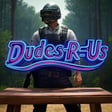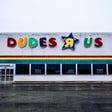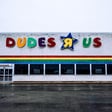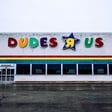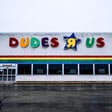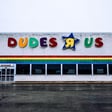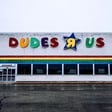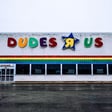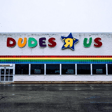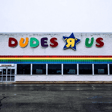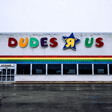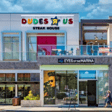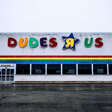Become a Creator today!Start creating today - Share your story with the world!
Start for free
00:00:00
00:00:01

Gwilym ft. Pan the Barn Cat
In this episode, I catch up with Gwilym, who I met while working in Cannabis, and became dear dear friends! He's moved far and wide and is currently gardening in Humboldt, CA. Listen in while Gwilym gardens and tells us about his plot of land!
Recommended
Transcript
Introduction to Podcast and Guest
00:00:01
Speaker
Hey, hey, hey, I don't really have like an official way to start this yet but okay, I guess it's the trellis podcast is up so three. We have my dear, my dear Gwillam is on with me today. Hello. I'm so excited. Hello. How are you. Oh my god. Good. Yeah.
00:00:19
Speaker
So I just, we can just chat like we were, if that's cool with you.
Farming Activities and Composting Techniques
00:00:23
Speaker
What are you up to today at the farm? What are we getting into? You're spreading manure, or no, not manure, you said compost? Compost, yeah. Did you make the compost there? Yeah, the guys who lived here before me, they moved out like a month or two ago, but they had this vermicompost system, so it was all worms that were breaking everything down. And they were really good at taking care of it, but they never used the compost.
00:00:48
Speaker
How long can it sit for? It can sit forever. I mean you just keep piling on top of it. Yeah it just gets higher. I guess eventually the stuff way at the bottom would start to get anaerobic and funky but I think it'd take a really long time.
00:01:06
Speaker
And it'd have to be a big pile. Did you turn the whole pile over before you started pulling from it? Or did you pull from the center? Like, how do you decide? Yeah. Well, they never turned it. I don't quite get how worm compost works. But part of it is you don't have to flip it over as much as a compost pile that uses more like fungi and bacteria to break things down. But I just like scrapes all the stuff that wasn't broken down off the top.
00:01:36
Speaker
and everything underneath was really good compost. I didn't even sift it. That's so sick. It was awesome, yeah. And then they did do some gardening here, but they put down one strip of landscape fabric, and then they planted into that, like cutting holes into it. So I took all of that out, and then I just put compost on the whole strip, and then I tilled that in.
Tools in Gardening: Broadfork vs. Tractor
00:01:58
Speaker
And it's really nice. And then I've got it all planted now.
00:02:03
Speaker
And I'm working on turning another part of the lawn back here into garden space. So I go over it with a lawnmower, super low, get the grass, like, as down to the ground as possible. And then I go in with a broadfork. Oh, I could show you a broad. Can I have it out? Oh my god. Where's my broadfork? Here it is. Where are you? Hang on. I can't put my cameras on. Oh my god.
00:02:32
Speaker
That's incredible. So broad force, I'm going to try to describe it because I don't think I'm saving the video. I'm not ready to like post things on YouTube yet, but so a broad fork is those things that you, if I'm describing it correctly, you can correct it. You shove it into the ground and stand on it and then tilt backwards and it kills or like turns over the soil that way. Is that basically right? Yeah, it's more like a giant wedge in the ground.
00:02:57
Speaker
okay so it's kind of like how you would use a wedge to like crack open a piece of wood or something like that it's kind of like all these uh metal teeth go into the ground and you jump on top and you wiggle the broadfork back back and forth and you get the teeth as deep into the ground as you can and then you pull back and it basically
00:03:21
Speaker
takes like a if it's a three foot broadfork it'll take like a three foot by six or seven inch plump of soil and just crack it open and push it up um and that basic it does the same thing that a um what is it called a chisel or a disc on a tractor would do
00:03:49
Speaker
So it's kind of like for small spaces aren't worth that. Or if you're just doing it in your backyard, you would just use a broadfork instead. But it's kind of like the manual way of doing what that tractor implement does.
Gardening Challenges and Environmental Impact
00:04:04
Speaker
And it's just the...
00:04:07
Speaker
Yeah, no, I was gonna say it's like, uh, that's funny. Uh, okay. I was going to say it's, uh, just a matter of like breaking up the ground into smaller and smaller clumps. So the first step, like break it up into big clumps and then throw a bunch of amendments on it and get all those amendments in between the crack down deep.
00:04:29
Speaker
and then you go in with a tiller, like a backyard roto tiller tool, or there's a tool that's basically a stand-behind tractor.
00:04:41
Speaker
It's a two-wheeled little tractor. It looks like an ATV chopped in half and called a BCS. And what's great about it is you can put different implements on it. So you could put an implement on it that does all the work of a broadfork and will like rip the ground into big clumps for you. And then you can put a tilling implement on it and then it'll break the ground into fine soil for you. Okay, I get that.
00:05:07
Speaker
Yeah, so that's what I'm doing today. So I just broke with the broadfork and then I'm going to put a bunch of compost on it and then I'll fill it up with the BCS and then it will be ready to plant.
00:05:18
Speaker
Are you, you said you're mowing it down. So you have grass in this area right now, right? Yeah, yeah. And do you like pull that out? Like I, when, I guess when I do my beds and stuff, I like completely rip the grass out, but are you leaving it in? You're not like going through and removing the clumps, right? No, I just mow it super low and then I till all the clumps in. And you don't, do you find that they, like the grass still comes back or does it, like, doesn't really come back for you?
00:05:45
Speaker
um i'm just curious i always rip it all the way out because i like areas where i irrigate but i think because of our like hot dry climate like i'm not expecting it to rain until november so my god that's nuts yeah it's crazy so basically i only weeds only come back uh this time of the year when you pull weeds out the ground they only come back in places where you irrigate um
00:06:09
Speaker
So, yeah, if you have drip irrigation, it's like only along the line. The line is where it comes out or overhead irrigation. That's where it's like.
00:06:22
Speaker
kind of a pain because you get tons of weeds but yeah it's nothing like being in Florida where like everything propagates on its own it's literally absurd i can't even tell you i like feel like i lose control of my yard every single week like i mow my grass once a week and every week i'm like how did it get so out of control it's just chaos here but it's definitely it's different
00:06:43
Speaker
So what are you planting in this area? If you don't, if you want to talk about it, I'm so interested. Obviously so interesting. That's great. Oh, can you say, do you mind? Do you say like where you live and like what your climate is like and stuff? They all have heard about my Florida gardening, but like this is so different, obviously.
00:07:00
Speaker
Yeah, I'm in Northern California. I'm in Humboldt County. And right now, I'm in a small, like unincorporated town called Shively. And it's along the Eel River. Really close to Avenue of the Giants. It's actually right across from the river from us. It's a popular tourist attraction. And
00:07:28
Speaker
Yeah, the climate here isn't really nice. It never gets like above 85. Most of our summer days are like in the 70s and it's like a pretty
00:07:39
Speaker
dry Mediterranean climate. And then in the winter, it's like the Pacific Northwest, it just never stops raining in the winter. It's super gray. And like, crops stop growing completely, because there's just never any sunlight. And a lot of crops can die out in the field. We'll try and overwinter stuff.
00:08:04
Speaker
and crops will die because they drown because the soil is so saturated water especially where we are we are so incredibly lucky um we're on the banks of the eel river and the top soil here is like uh everybody's got their own story around here but i've heard anywhere from like 20 to 40 feet deep
00:08:26
Speaker
um and oh my god yeah so the combination of like and it's a really good topsoil like it breaks up super well it's not too much play it's not too much stand um and it's just a combination of like years of uh thousands of years of ocean deposits
00:08:46
Speaker
um and that's where we get this like nice blaze tilt mix and then all of the organic matter as well being dumped by the forest out here so if you can picture like little geology lesson like um you know
00:09:04
Speaker
the ocean it's like all these deposits are building up and it's kind of just like um what do they call it it's called ocean snow or something like that but all the debris that falls to the bottom of the ocean just piling up and with the tectonic plates out here we're in like some of the fastest rising places in the world but because of the
00:09:27
Speaker
types of rocks that are here. They're pretty brittle. It's a lot of sandstone and mudstone that hasn't had time to actually become super solid. Things crumble, so even though our hills are growing as fast as the Himalayas, they crumble really quickly with all the earthquakes and mudslides that we get. That crumbly soil, that's why it's still good, such good soil, because it crumbles when you till it.
00:09:53
Speaker
And then that also with like thousands and thousands of years of organic matter being added to it. And then being at the river here, whenever there's a flood, this whole river bar floods out. Whenever there's like a 200 year flood, which wipes out the whole town here in the 60s, it deposits amazing stilts. And so it's like already good stuff to kind of break up and grow in. And then the river just kind of like
00:10:23
Speaker
um conditions are even more in deposit uh good soil for us out here and freaking incredible yeah and then um on top of all that we don't have to irrigate out here because yes oh my god i was hoping you're going to talk about this i was like what's the word for it i have to make sure i ask you because this soil is like such a perfect blend of like stand stilts and clay and organic matter and it's super super deep and we're right next to a big river
00:10:52
Speaker
Um, it basically acts like a sponge between the river water or the groundwater and up top. So it's, or, or like, um, water moving up a rope. Um, okay. Yes. Yep. It's all kind of capillary action. And, um, so once the roots find that water, um, you don't have to irrigate. They just keep going.
00:11:19
Speaker
So how far down does that happen? How deep are your roots getting before they're hitting that? Well, like I said, in the winter, when all the plants are drowning, the water table is at your ankles. Insane. Because sometimes it floods, and the water's up to your ankles. Oh my god, literally. Yeah. It's so wild. I'm like 30, 40 feet up here on the terrace.
00:11:44
Speaker
Yeah, down there in the winter, it'll flood. So then it does delay us in the spring. It holds us back from planting because that soil gets so saturated. We have to wait for it to dry out. And like when that soil is saturated, you can't tell it. It's like killing peanut butter and.
00:12:04
Speaker
so like once it is ready you scratch the surface and the water is like you can see the moisture in the water and it just holds on really well like you know how when you like fill up nice new wet soil it's dark and then on a sunny day like after half an hour it's like dried out yes yes with this soil you till it up and it does that but you just scratch a little bit more and it's still dark under there
00:12:27
Speaker
and that's incredible and yeah so throughout the season it does get lower and lower you have to dig more to find that moist soil and i guess on a really really dry area you have to dig like two or three feet um but at the end of the year you know um right
00:12:46
Speaker
That's so cool.
Plant Maintenance and Selling Strategies
00:12:48
Speaker
In the spring, you don't have to worry about it. You just fill the soil and you plant stuff and you make sure you plant stuff with extra spacing so that each root zone gets a lot of room. So like I planted all my tomatoes like four feet apart. That far apart? Yeah.
00:13:05
Speaker
Wow. Um, but the compromise is like, I barely have to take care of them. Um, right. I just, I'm just gonna like trellis them and inch off the suckers every now and then, um, check for pests. But besides that, I'm not really gonna do too much. Even trellising them is kind of overkill. Um, like a lot of people out here.
00:13:32
Speaker
Just so they, some people have called it like jungle growing where you just like grow a bunch of tomatoes like that and you just let them go off. It's such a good environment for them out here. They just get monster big and it turns into like tomato jungle. And then you, and last year, like I was harvesting tomatoes out here and in a tomato jungle and it really was like, you just go in, you just grab a branch and pick it up and you pick, you don't pick all the tomatoes, you pick the best looking tomatoes.
00:14:02
Speaker
oh my god and you move on um that's so wild and then there's just tomatoes everywhere it's not even about like getting all of them because you know there's gonna be way more than you could pick so you just get the best ones as many as you need or as many as you can i guess um
00:14:22
Speaker
I accidentally did that. Yeah, I accidentally did that this year with one, but I was just talking about this last night on the episode I recorded, but I sowed a bunch of seeds and then my dog got into my garden area who was very not allowed to be in my garden area and just destroyed all the seeds.
00:14:41
Speaker
So I like forgot about all of these and then something popped up and I was like so stoked about it. I was like, Oh my God, what is this plant? And I thought it was some flower that I just couldn't identify. And it was just a freaking tomato plant. And it's just taking over the bed. I'm like, please relax. Please stop. And it just won't stop. It's just going crazy. What varieties of tomatoes do you grow?
00:15:00
Speaker
I genuinely, I wish I could remember the names of them, but like, I just, I bought starts. I'm like such a lazy gardener sometimes. I bought all my starts for pretty much all my starts that I bought for, uh, or my vegetables from my farm this year. I bought all the starts. I like respect the biz on start, like starting seeds for sure. But I just, I don't know something about it. I'm like, I just want to put the plant in the ground, just like get it going. I don't want to wait for all that.
00:15:25
Speaker
I'm lucky here I can sell like almost anything into the ground and it'll go for I mean to really like start anything inside but yeah, I don't know I just did starts but
00:15:34
Speaker
There's a cool one. I can't remember the variety. It was like candy land, I think, but they literally were like the size of Skittles. And they just like, they were so good. There was hundreds on that plant. It was wild. And Nora was just like ripping them off every single day. And just still, there's just hundreds of them. I bet they would sell so well, but they'd be such a pain in the ass to harvest. Dude, just harvesting for myself. I was like,
00:15:56
Speaker
Yes, oh my god, I'm like trying to harvest them to like use for dinner for like a salad I'm like, this isn't even worth it. I'm just gonna eat right now. I'm not doing this. It's ridiculous Do you have particular varieties you grow out there? Like do you prefer like a Like beef steak sized tomato or you try on smaller tomatoes. Does it depend? I what sells really good at farm stands is heirloom tomatoes and cherry tomatoes
00:16:22
Speaker
People snack on cherry tomatoes, especially the yellow ones, the sun golds. Yes, those ones are so good. They're great. Sun golds, they just say crack. They're kind of tricky to grow. You have to like dial it in, I guess, with sun golds. And then... Mine? Yeah, people like the... I think Big Beef is an heirloom.
00:16:48
Speaker
German Johnson is one that gets like the lines and ridges in it. Brandi wine is one that's like that and it gets kind of pink. And then yellow brandy wine, people go nuts for yellow brandy wine, like giant orange tomatoes. Amazing. And I'm growing those this year, yellow brandy wine. And then out on the coast here,
00:17:17
Speaker
It's a different climate. It stays really cold on the coast out here. We have like ocean currents that come down from Alaska. So it's like when the hot air from Southern California meets the ocean currents of Alaska. It creates like a ton of fog on the coast. And it's almost like a
00:17:39
Speaker
all year long natural air conditioning um sick it's pretty sick yeah like if i'm ever too because i have i live down in i have a place down by the coast as well and so when it's hot up here when i'm working down there it's or working up here and they get super hot it's nice to go down there and like steam off from the fog um that's awesome but uh down there you have to grow different varieties and different crops and
00:18:09
Speaker
like hot crops don't do so well anything more tropical than like tomatoes and peppers really doesn't do well without a greenhouse and the right variety and i've found out there some good varieties are things that are grown in eastern europe or russia because they did a ton of work in the 70s like breeding varieties that would do well in cold climates so like
00:18:36
Speaker
uh muscovit is an heirloom i found that's really good in colder climate and hungarian peppers um okay and you can find these seeds in like um like your hardware store in the spring they're pretty common varieties
00:18:54
Speaker
uh oh early girl um early girl yeah there's a bunch of tomatoes cold like there's an early girl there's an atta girl and there's a dirty girl um but early girl
00:19:08
Speaker
It does well in the cold and it comes on quicker. It's like really quick to harvest from seed. And I grow, that's the most common one I see out here. And I think it's just because it's the easiest to grow and the most like, and it's just a normal standard tomato. So you can use it for anything. Anything.
00:19:36
Speaker
Yeah. So yeah, working on the garden today and then working on my farms tomorrow. The farm? Are you selling like?
00:19:45
Speaker
Are you like roadside with that? Are you going to farmer's markets? Like what's the, like, what's the plan? I'm so excited. I think I would prefer to stay out of farmer's markets. I am, my only availability is weekends right now. Right. And you would spend your whole weekend there. Yeah. Well, no, I'm going to be selling stuff on the weekends, but I think like the farmer's markets here that are open on the weekends are like, uh, an hour and 20 minutes away from me.
00:20:16
Speaker
And they're really crowded and competitive. And I just like, this is my first year and I'm like, I don't have my.
00:20:26
Speaker
together enough to be out there. You don't have to do all the things. You don't have to do all of the stuff your first year. I always catch myself with that. I'm like, I want to become an herbalist. I'm going to grow all my own herbs and be the herbalist and sell them. And then I'm like, bro, I got to like chill out. I can start with growing things. Exactly. And like,
00:20:49
Speaker
I'm lucky like I've got day jobs that can help pay for my farm and my life though I'm not banking on this all working this year but I've got like goals for what I want to accomplish in terms of like sales definitely and so yeah there's a lot of opportunities for me to sell my produce on places that are closer and one idea I've got is a roadside farm stand
00:21:18
Speaker
um so i got i got this super cute trailer oh my god yes i saw your story about this oh my god wait it's so cute stop it oh my god hello sweetie rolling around oh my god so give me some attention from my belly oh my god
00:21:39
Speaker
I like have yet to try to convince my garden cat that I like need to love it. I'm trying to not do that to it, but I just want to pet him so bad. Like come here, but he's like terrified. Oh my God. Dude, he would lose his mind. Absolutely would lose his mind. Oh my God. He's so cute. He hides amongst like these little yellow flowers, his little eyeballs stick out. I'm like, I love you. I love you so much.
00:22:05
Speaker
Okay, so the trailer what is our plan with the trailer? I'm gonna well, it's got those wooden sides on it. So I'm gonna take off the sides and then keep the backside on and use the backside to put up signage and then the front will be the display. My produce and I should say produce and flowers because my farm is like 70% cut flowers. The rest is heirloom tomatoes and peppers.
00:22:35
Speaker
And then I might do more vegetables next year. But we'll see how it goes. So I'll be doing bouquets and then single stem sunflowers. So fun. And I did it a couple years ago. Who's not stopping at that? Who's driving by that and not being like, I obviously could use flowers in my life. Like, what the hell? Yeah.
00:22:56
Speaker
So I'd like to yeah, I've got some places on roadside spots that I think I'd be good to set up. And then another idea I got is like, talking to local businesses and seeing if I can set up in their parking lots on the day that they're closed. Is there some other farms that do that? And I like the idea of setting up a farm stand because it's also like, you're making your own market there. And you can go to places that don't have a market.
00:23:26
Speaker
So if there's somewhere that's like competitive and tapped out, you can just go down the road somewhere else. And I think like people are getting more into local food out here as well. So there's more and more people being like, oh, sweet. I don't have to drive to Arcada.
00:23:44
Speaker
Also you can't grow hot crops down by the coast so I think that's one benefit I've got like a lot of the stuff I'll bring down there you can't grow down there and most of the farms vegetable farms here are in around the Humboldt Bay which is that whole coastal climate so they're all growing like brassicas and spinach and
Local Farming Challenges and Learning Experiences
00:24:03
Speaker
onions
00:24:03
Speaker
Um, stuff that you can grow really well down there. Um, but everybody's got the same stuff and there's like, a lot of people coming out with tomatoes and peppers and things like that. Um, especially further from Arcada, like where I live near Ferndale. Right. And Ferndale is just like a dairy town. Um, every, yeah, it's definitely more cows than people in Ferndale.
00:24:32
Speaker
stop it oh yeah that's so cool there's mad cows around here too it just makes me so freaking happy what else oh god you always have to say hi hi we stop i would like force nora to look at them she's like i literally don't care i'm like yes you do look at the cows they're awesome beautiful they're big eyes oh my god i think she's just like not so she's like yes you guys show me this constantly i know look at it she'll get it one day
00:25:00
Speaker
Oh, she will. She'll be stoked in like a year from now. She's just like, what are you guys talking about? So funny. So, oh, um, we are going on for flowers. Or do you, Oh, can I ask, what do you prefer growing if you had to vegetables or flowers? If you had to pick, I don't know, we'll see. Um, these are flowers. Well, I like, I mean, I like veggies because I like food. Um.
00:25:30
Speaker
But flowers are awesome because I think from because I used to grow weed. So I think from doing that as a job for a long time and like getting really into that, there's a lot of crossover. Yes, you're growing a flower just like with weed, you're growing a flower and you're like focusing on like appearance and smell.
00:25:58
Speaker
And there's like a big emphasis on that where you're not like, we're as worried about that with vegetables. I mean, you want them to look good. Um, but you're not like constantly trying to like improve on appearance and smell or like, it's not something, I don't know. And when I was working with, uh, weed, it was just like.
00:26:19
Speaker
everything that people focused on is like how can we get this to like look and smell better and I feel like flower people are the same way or when I work with flowers it's the same thing comes out and it's just like um that kind of obsession is like motivating yes and then peppers I mean peppers and tomatoes and vegetables too it's the I don't know the motivation there is also just like
00:26:46
Speaker
how much you're helping, uh, potentially helping people with food as well. Um, that's very true. Yeah. And I say like potentially helping cause I'm like, food's fucking expensive now. Like a tomato, organic tomato out here is 350 a pound. Um, heirloom tomato at the convenience store next to me, not even organic. It was $4 a pound. And those big ones, those get up to two to three pounds. That's a $12. That's an eight to $12 tomato.
00:27:15
Speaker
um holy shit yeah i like that you know there's a lot of ways in california that we can like get veggies out people who can afford them um got a really good food assistance program out here called cal fresh which is basically like food stamps but you get a credit card and you can use it at farmer's markets and you can use it on csa shares um okay
00:27:42
Speaker
and that's like a basically a weekly or monthly subscription box you get from farms and CalFresh funds my other job where I work at a clinic here there's a series of health clinics in the county and we got funding from CalFresh to
00:28:05
Speaker
grow what we call wellness gardens. And basically, there's a garden next to the clinic, and we grow as many vegetables as we can. And we give them away in the lobby. To anybody we don't ask, are you on Cal fresh or any? Well, we do.
00:28:21
Speaker
But anyone can take them. We say I put up a big sign that says free vegetables for anybody that wants. Just make sure you sign out when you leave. And we just ask that people fill out a little survey that's like no names. And it's just like.
00:28:36
Speaker
Who's in your house? How many people are in your house? How many seniors? How many kids are you on any kind of assistance like CalFresh or EBT or anything like that? But it's awesome because I get to just grow as many vegetables as I can and give them away. And then we get in volunteers as well. Anybody who wants to like get involved in gardening comes along and I love that because I get people from like all different kinds of skill levels.
00:29:06
Speaker
Everybody's like high enthusiasm, but different skill levels, so it's great to have people who kind of know everything and they can like really help me get a move on with stuff and we can get bigger projects done and then people who are just learning and I love that because then I like.
00:29:25
Speaker
like, you know, part of my job is to like, make sure the volunteers have a good time. So if someone's like just learning, and they don't know how to do a lot, but they're super enthusiastic, I get to be like, hold on, like, I don't know, I get to stop like working so hard physically and just like be present with a person. And amazing. That's the really nice way to like have a
00:29:50
Speaker
What was it called? We call them warm and fuzzies when you have like, it's so cheesy. But when I first heard the phrase, I was like, oh my God, that's so cheesy. And then I had a bunch of fuzzies and I was like, that was warm and fuzzy. I do feel that way. Yes.
00:30:05
Speaker
I love that. But it's nice when you're like an experienced grower, because it can become I'm not saying I'm an experienced grower necessarily, but it becomes kind of monotonous, like it becomes very habitual, like you just know what you're doing. And just stop and slow down and be like, Yeah, you're like, Oh my god, there's so much that I just take for granted with this that is like, yeah,
00:30:23
Speaker
there's so much to learn and you can just go down so many rabbit holes like you and I cross paths and like the cannabis like industry but right at the end of the day like we do like very different types of gardening who are in very different places but like oh there's so much to growing and gardening and it's just cool to like take a step back and be like let's start with like this is the soil or like i don't even know like you could start anywhere too which is like amazing i know i have to do uh
00:30:51
Speaker
i have to do a thing for a summer kids program soon i'm going up to help my friend and i need to get more information from her i'm like what it's what's the age group she's like five to twelve oh my god like kindergarten to seventh grade um it's gotta be narrow can you talk about this i don't know yeah it has my subject is like the she was gonna each day of this like summer camp they're learning about a different part of plants than gardening
00:31:21
Speaker
like learning about roots learning about leaves learning about flowers and then one day it's like learning about like the plant as a whole so that's the day i think a plant as a whole um so you know what'd be cool like i just got an idea i was like let's rip some plants out of the ground kids love like
00:31:40
Speaker
dude they were breaking stuff and getting to like yeah feel like they break the rules let's like rip some plants out the ground look at the roots then rip up the leaves and then definitely dude it was Nora's first this is Nora's first summer like really in our garden like we just had a few things in the yard last year and this is like her first year really out there all the time and at first i was like really trying to i was like be gentle like please be gentle
00:32:05
Speaker
And then I realized like she ripped stuff apart and like she squeezes a tomato. And I'm like, Oh my God, your brain is going like, like learning so much right now. And like, dude, she does like cool. Like dude, she does cool shit randomly. Like she was like, I have salvia growing back there and she like ripped all the flowers off. And at first I was like, my heart hurts so bad, but now it has grown out back and it's like, so it's like a topiary, like it's crazy looking. And I'm like, dude, you actually like crushed it. Like you talked to us in the
00:32:35
Speaker
possible. Yes. Dude. She just did like the coolest thing ever. I was like, see, you know, like you got it. Like, yes, kids. Yeah. Like kids ripping stuff apart. Like, Oh my God. They would definitely live for that. Like you would learn so much from that watching it come out of the ground. Like, yeah, that'd be sick. Yeah. Oh my dude.
00:32:54
Speaker
I've never grown a carrot. I still think I would lose my mind doing that. Like adults love doing. I don't know. When do I do that? I don't know. I'm still in such like a being in Florida. You've got time. You could start carrots right now. I'll get that in fast pace in the garden. Amazing. You just have to start them from seed. That's, that's why you can't, um, you can't transplant them. Um, but have you ever used row cover? No, no, I haven't. Do you know what it is?
00:33:25
Speaker
You could, you could definitely school me on it. I definitely am not sitting here being like, yeah, for sure. Let me show you. Road cover is awesome. Oh, I'll show you my garden in a bit. Road cover is like this white fabric stuff. I have a bunch in my car, I'll show you. And it's kind of like dryer sheet fabric.
00:33:47
Speaker
uh okay it has the similar texture but you i always think it looks like plastic that's really interesting that it's not really is it plastic or maybe it's a plastic mix okay i always think those look like plastic that's actually
Gardening Techniques and Innovations
00:34:03
Speaker
really interesting okay yeah yeah let's sit and you do them with the small hoops or how are you using it um you can do it flat on the ground when you first direct seed um so like just throwing seeds in the ground like you'll just have it flat
00:34:17
Speaker
And then once they start to grow some things I don't use hoops for like leafy greens like spinach and lettuce. I just I'll just have a lot of extra row cover on the sides that I have.
00:34:34
Speaker
pinned down at first and then as it grows I kind of loosen it up a little bit um and you just let it sit straight on top of it basically yeah yeah like loosely but loosely exactly yeah and the plants will like push up if it's not super tight holding it down and then yeah once they get any bigger than that or bigger crops um like brassicas or tomatoes when they're young i'll use poop they'll buy like
00:35:00
Speaker
metal hoops that are i've been trying to find the best price they're like 80 cents to a dollar 20 each um i found 100 hoops for like 80 bucks i think that was the best deal i got and they're like they're like six or seven feet tall but
00:35:17
Speaker
When you bend them in half, they're a lot not as long as they seem or as they are. And are you using these for cold or for heat for both? For heat. So it makes a little greenhouse effect. And that's really nice out here because sometimes it's just a bit too cold to get things to grow fast.
00:35:43
Speaker
So that can have plants kind of kick it into high gear early. And then it also really helps with germination because it keeps the soil, the surface of the soil just a little bit warmer. And it helps keep the temperature more stable because it's a bit of a controlled environment in there.
00:36:01
Speaker
um it protects it from pests um so bugs and slugs and bird um i feel like this is like not going very specifically the gophers will go to psa they don't care i feel like this would be really good in like in new england gardens like i've had people like reaching out lately that are like dealing with tons of like different pests that i do not have like yeah
00:36:30
Speaker
Sometimes they can backfire on you if you have Pest get into your row cover and you don't check it and then you look under there and it's like aphid's ditty because they've just been having a party and nothing's been able to like get at them like they haven't had any cold nights or ladybugs to find them.
00:36:50
Speaker
um yeah and so like out here we always take a gamble with this pest that takes depth our brassicas called a flea beetle and it's just like what it sounds like it's like the size of a flea but it's a little beetle and when you get close to it it jumped and it just like disappears instantly and when there's a ton of them like a huge infestation you'll walk down the row of brassicas and it sounds like popcorn is going off
00:37:19
Speaker
No way. Because you just hear them all clicking against the leaves. There'll be thousands of tiny bugs. How do you deal with something like that? We keep row cover on from the very beginning. And then we're like, I haven't seen flea beetles in a while. I think we should take the row cover off. Did we take it off last year?
00:37:42
Speaker
Oh my god. And no one can remember. One thing we'll do is we'll check the wild mustard and the wild radishes in our fields because those are also brassicas. And that is where most of the flea beetles live. So yeah, we will look around there. We didn't see that many. Funny enough, though, we took the row cover off.
00:38:09
Speaker
our brassicas and our eggplant. And we left half of our eggplant covered in netting instead of row cover with like a really fine mesh netting over hoop. Yeah. And the flea beetles only went for the eggplant without cover. They didn't go for any of the brassicas. And I think that's because they were older plants and like the flea beetles prefer younger plants with softer tissue and more sugar. Okay. The older plants have tougher tissue and they're more bitter.
00:38:39
Speaker
um and the eggplants i don't know the eggplants were all pretty young so i think that's probably why they went for the eggplants um okay we were going to we kind of messed up this experiment and it didn't happen but we were going to grow a variety of mustard that um gets super big and the idea was they would be our trap crops so we'd plant that first and have that attract all the flea beetles and then we would plant all our um
00:39:09
Speaker
uh other brassicas and things that they get um but why did that not happen oh we yeah we had a bad day in the greenhouse and like our fan system broke down and a lot of stuff overheated hmm but um that'll happen man it would experiments go down real quick
00:39:32
Speaker
Yeah, and our greenhouse out here was donated to us from a cold, coastal climate. So they like took it apart and brought it here and reassembled it. And because it's made for a cold climate, it's like, kind of unbearable if it's like, 75 degrees and more outside. So in the summer, we we just, we put shade cloth over it. And we use it mostly for curing crops like onions and garlic.
00:40:02
Speaker
um but this year we put a bunch of big raised beds in it and we're growing like stuff that does okay in hot like really hot climates so we've got sweet potatoes and all these raised beds cool no one of the raised beds is sweet potatoes and then we're doing like ones of summer squashed and cucumbers in the other that's so fun we want to do ginger but that also kind of got fried when the uh fans broke oh no
00:40:28
Speaker
I have ginger on my counter that has fully sprouted and definitely could just go on the ground. I have no idea why. Do it, dude. You're in Florida. This is the problem, Gwillam. I have no idea what can go on the ground or not. Everything. You're in Florida.
00:40:45
Speaker
But the New Englander in me is like, I don't know what you can. There's three months to grow things. Can I grow anything? I don't know. I don't know. I got to print that too. Oh, my God. Dude, everything. Check it out. So this is that. OK, OK, OK. Wait, do you see blue sky? Oh, yes, I do. OK. And then like this is all ocean fog that's coming in.
00:41:11
Speaker
Stop it. Yeah. So like when I called you at the beginning of this poll, it was like close to 80 degrees and super dry and sunny. And like, I'm in my flowy outdoor stuff right now. Yeah. As I've been chatting to you, like all the fog came in and now it's like, um, now it's probably like 60 something degrees. Um, are you sick? Does it roll in? Does it roll in every night?
00:41:40
Speaker
Almost every night. Or is it like, that's so wild. And this thing happens where the hotter it gets inland here, like it sucks in moisture from the coast. So the funniest parts of the year on the coast are like in the fall and the spring when it's not that hot in the hills. But then once the hills heat up and it's like 100 degrees just east of me, then like all of this moisture gets brought in. And I'm really not that far from the coast. I'm probably like
00:42:11
Speaker
20 miles from the coast going directly east. There's just like a few thousand foot mountain ranges. Just some outreach. That like a thousand feet is the smallest a hill can be before it's the mountain or the tallest hill can be before it's a mountain. So technically they're really small mountains or really big hills. It's up to you. Yeah. However you want to look at it. Oh my God. That is incredible.
00:42:41
Speaker
What is it, Pan? What's his name? Pan. Her? Pan, yeah. I think she's a C. I don't know.
00:42:49
Speaker
Um, we, we haven't really cared to figure that out. Um, it doesn't matter. Yeah. That is so funny. So it's, yeah, whatever. Ours is a boy, which I am grateful for. I do not need a litter of cats in my yard at this moment. She got really fat over the winter and at one point I was like, oh no, I cannot be a dad. I cannot accept this like level of responsibility right now.
00:43:17
Speaker
You don't have to keep all of them. What else are you doing? Oh my god. That's me with the dogs. I see one dog online. I'm like, oh my god, I can go get that dog now. That one has to live in my house. I have no other choice. I've seen them and I love them now. Yeah. It's fine. That's why I can't go to Caturday at Petco. Not again. No, I like Pan because she's like her own kitty. He lives her own life.
00:43:46
Speaker
I don't need her. She doesn't need me. We don't need each other. But it's just nice to say hi every once in a while. Yeah. It's just nice to say hey. And she's off. I didn't agree on it on camera. You bring me anything at the house? Oh my god.
00:44:11
Speaker
um she eats everything we named her after bread because that's her favorite there's the pan the french word for bread he loves bread um and so like we have to tell everybody that works here um like please hide your food you will get into it one time a student
00:44:34
Speaker
stopped at Carl's Jr. on the way here and he has two cheeseburgers in his car and then at lunch he's like yo the cat ate my cheeseburgers dude like both of them he got into my granola bars too she's looking at me so proud right now she's like hell fucking yeah i did yeah and then she's also like vicious he just eats gophers and balls all day i saw her eat
00:45:01
Speaker
two bowls and a gopher the other day and then she begged me for food I'm so hungry and I have a theory that she like gets worms in the summer and she just doesn't put on weight just keeps eating as in winter she got really fat and I think because she was living off of cat food and she wasn't getting like dosed with parasites um but you know she's her own wild kitty
00:45:28
Speaker
I basically, I think of it like she's a wild feral cat who's just got like a really good hookup out here. Exactly. Yeah. That's the most awesome life for a cat. Like I'm good. However, I can stop here anytime and just get like a little snack. That's pretty dope. I can't lie. Oh man. I love that dude. Dude, thank you for the garden update. This is incredible.
00:45:56
Speaker
Wait, I gotta show you. Yeah, the actual garden. Oh, I gotta show you this yard. It's insane. Wait, is this where the giant redwood is? Yeah, yeah, okay. Okay, you can't see it because it's behind this maple tree, but that is a maple tree. The stump is about from there to there.
00:46:24
Speaker
half the width of like the space that the maple tree foliage takes off. But I'll try and see if I can show you in there. But like yeah, we're so we're in the middle of the redwoods. There are other things that grow here are big leaf maple and red alder. But besides that, it's like 90% redwoods. Redwoods are crazy because they have really shallow roots.
00:46:51
Speaker
And they grow really close together. So their roots actually spread super far on the surface and they weave into each other and that's how they keep each other stable. So they weave into like a carpet and they hold each other up. Yep.
00:47:07
Speaker
And they're super, what's the word, rhizomatic. They'll grow new shoots when you chop it. So when people first came out here and they were chopping like the ancient trees, they were like, this is amazing because the trees have so much embedded energy and they would just sprout up new giant shoots. And that's still how people log out here is like you chop a tree and then you wait for the shoots to grow back and then you chop the shoots and you wait for those to grow back.
00:47:37
Speaker
and they did that forever out here and then after the 50s like with industrial machinery and then it was like the combination of industrial machinery and thumbs of hippies moved here so it was like all these people were going super hard on logging and then all these people were going super hard on like hugging trees so
00:47:59
Speaker
it was like kind of crazy there was almost like a little war between the two groups that were here for a while and it was like dangerous and then there was like all the like weed growing going on back then out here too which was all illegal back then so it was super wild place back then um still is today but at least it's a lot safer yeah but anyways tangents uh
00:48:24
Speaker
No, but so interesting. Yes, please.
Literary Recommendation and Garden Tour
00:48:28
Speaker
I was gonna say though, I just, I wanted to recommend this book and I have to recommend it to you also. I think you would love it. It's my friend Katie recommended it. And it's called the over story. And like the overarching story is all about trees. It's fictional, but there's a lot of like, oh, cool fact in it as well.
00:48:46
Speaker
Yeah. Yes. And like all of these, that's the book that you recommended to me that I read. I was trying to think of it today. I was like, what book? Good book. Yeah. It was incredible. But it's really cool. All these stories of like individuals weave together, but it's all through the premise that like trees and nature like connected them all. Fantastic. That's so cool. I'll send you a link. And living out here, it makes me want to write my own like Humboldt version of like the Waltons or Little House on the Prairie.
00:49:14
Speaker
Um, please do. Why would you not? Amongst all your other projects, please also write a book here. Nobody knew why he didn't talk. We all thought he didn't speak English. Turns out he was deaf. That's like the first episode of the Waltons, I think. Oh my God. So here's my garden.
00:49:44
Speaker
So it's like a five foot by 50 foot strip. Five by 50? Yeah. Oh, my God. Okay. So I just took like one strip in the yard. Like, well, it was already there. I just killed it. So we got a human. I accidentally like crimped them all today with the hose. You know, that thing where you move the hose over a corner and you just like
00:50:11
Speaker
nearly decapitate all your plants i might but i've got backup i have backups i can replant so it's fine um but these are normal tomatoes these are the yellow brandy wines um i got a bunch of peppers here these are all my starts on standby that i need to put in my new spot tons of peppers like bell peppers i got puppies i got marigolds i got tons of onions
00:50:37
Speaker
And then another, this is like a big flower section. I've just got poppies and snapdragons, cosmos, and zinnias. And then, oh, it's pan, hi, pan. I'm growing a little pan right here. And I grew a cat. And then the back here gets a lot more shade. So I'm growing some lettuce back here. And then I've got these more onions. And then here's our compost.
00:51:04
Speaker
I made that cute dime. And I'm gonna separate it into three piles eventually but basically like that in the corner there is done. That I just flipped today and I put some fertilizer and some grass clippings in it so the nitrogen will like get it hot again. And then that is like the new spot where we're gonna put more things and the guys who moved out like threw their cardboard in here so.
00:51:32
Speaker
I'll just chop it up and throw that in. Yeah. Or we have to do like a whole, we should do a whole episode of composting because I am still wimped out of composting. I like a pile in my yard that I like half started to be like, would this work right here? And it is definitely breaking down. So I actually do need to do it, but I am just, I don't know, man, I get way into my head about like, flip it and add stuff.
00:51:58
Speaker
I know, I know it's like that simple, not that it's that simple. I know that it's like a just do it kind of a thing, but you know me, I just get so in my head about like researching shit first. So I'm just like, I understand all the science. Some stuff I've tried that with and I like, I understand compass in theory.
00:52:17
Speaker
But then I'm like, I don't know where my pile is at in that theory. I just know that like this pile's breaking down pretty good and it's about ready and that pile's probably going to be a few months. But you know, I had that with bees. When I got bees, I like I did pretty well beekeeping my first year, but I had no idea what I was doing.
00:52:38
Speaker
even though i did tons of reading on it i was like yeah i kept being like i think my bees are doing this and then they would all like look like they're about to die and i'd be like oh no i think my bees are about to die and then they'd bounce back and be amazing and i'd be like i don't know what i'm doing i'm just like nature's driving this train and i'm just yes uh it's not even a car like we're on track
00:53:00
Speaker
Well, that's like the whole thing though, isn't it? Plants would be here and doing their own thing without us at the end of the day. We're just here to help, or I don't know, if you want certain things in a certain spot. Right. My grandpa, he used to say, I didn't grow that, nature grew that, and I just helped it along the way. Yeah, that's true. All right. All right. Okay.
00:53:31
Speaker
This is my British Matthew McConaughey. All right, all right, all right. Thank you for that. Sorry, I can't hold that in. I've been doing that a lot lately. But yo, look at this dump. Oh, my freaking
00:53:52
Speaker
I have to see the red, like I can't, I have to see the redwoods, I don't know what to say. For scale, like here's a lighter. And then across the river from me in the avenue with the giants, they have like, they have like acres of this stuff still alive and you can just wander through the forest. All right, all right, you see the little lighter? Oh my freaking word. Okay. Quillum.
00:54:25
Speaker
This is the most absurd thing that I've literally ever seen. Was it like shocking when you first saw them? I know I'm being like ridiculous. He described seeing them, but like what was it like seeing them? Oh my God, look at the hole through them. That's like a five foot hole. You could literally climb through this hole. Oh my God, stop. Yeah, let's do it. Is that the center of it? Yep. I think that I just lost.
00:54:54
Speaker
while he was climbing through a redwood tree. He has the craziest, obviously there's no video, but he has the most insane, very old redwood stump in his backyard next to his garden.
Conclusion and Future Episodes
00:55:07
Speaker
And he was literally crawling through a five foot hole into the center of the tree. And then the tree decided that it was not having that while being on a video call. So I think we lost him.
00:55:18
Speaker
But that was our first episode with Willem. Absolutely fantastic. I'm so glad that he got to come on and chat with me. Willem has just a wealth of knowledge of all things. Just everything. It's just incredible. I love talking to him. I love seeing what he has going on for his garden right now. It's incredible the way that you can just kind of chat and learn so many different things.
00:55:40
Speaker
just listening to someone tell you what's going on in their garden there's so many avenues like we said there's just so many avenues and paths and like options when it comes to gardening like you just like finding the right one is just truly through experimentation like
00:55:56
Speaker
Maybe you planted a ton of vegetables and that's what you thought you were going for this year and you also did like I'm just gonna throw some flowers in and like you never know what's gonna grab you like it might be the flowers over the vegetables or like Whatever it is. It's just so incredible and such a I love hearing about what other people have
00:56:13
Speaker
Going on in their gardens where they're growing. It's different Lovely lovely lovely, but as always thank you guys so much for listening to this episode with Guillam He's gonna be on much much more We have so much so much to talk about with him Like we said, I would love to do a whole video or a whole excuse me a whole podcast about compost there's so much to it that my brain just like racks itself and doesn't understand and
00:56:42
Speaker
Maybe we just got to get going on it. Who knows? But there's so much more to come. Thank you for listening. It means so much to me that every time that you guys click in, every time that you listen, I hope that I am helping to create a space that we can all share some freaking awesome garden stories. I'm here for it. I hope you're here for it. I hope you enjoyed this episode. We'll be back with the next one. Okay. Bye.

